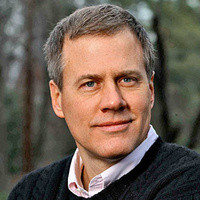This Is My Brain on Chantix
Chantix is a pill that decreases the pleasurable effects of cigarettes. It also causes hallucinations, suicidal thoughts and waking nightmares:
A week into my Chantix usage, I started to feel as if the city landscape had imperceptibly shifted around me. Mundane details began to strike me as having deep, hidden significance. The neon arch above McDonald’s: The lights blinked on and off in some sort of pattern, and I needed to crack the code.











